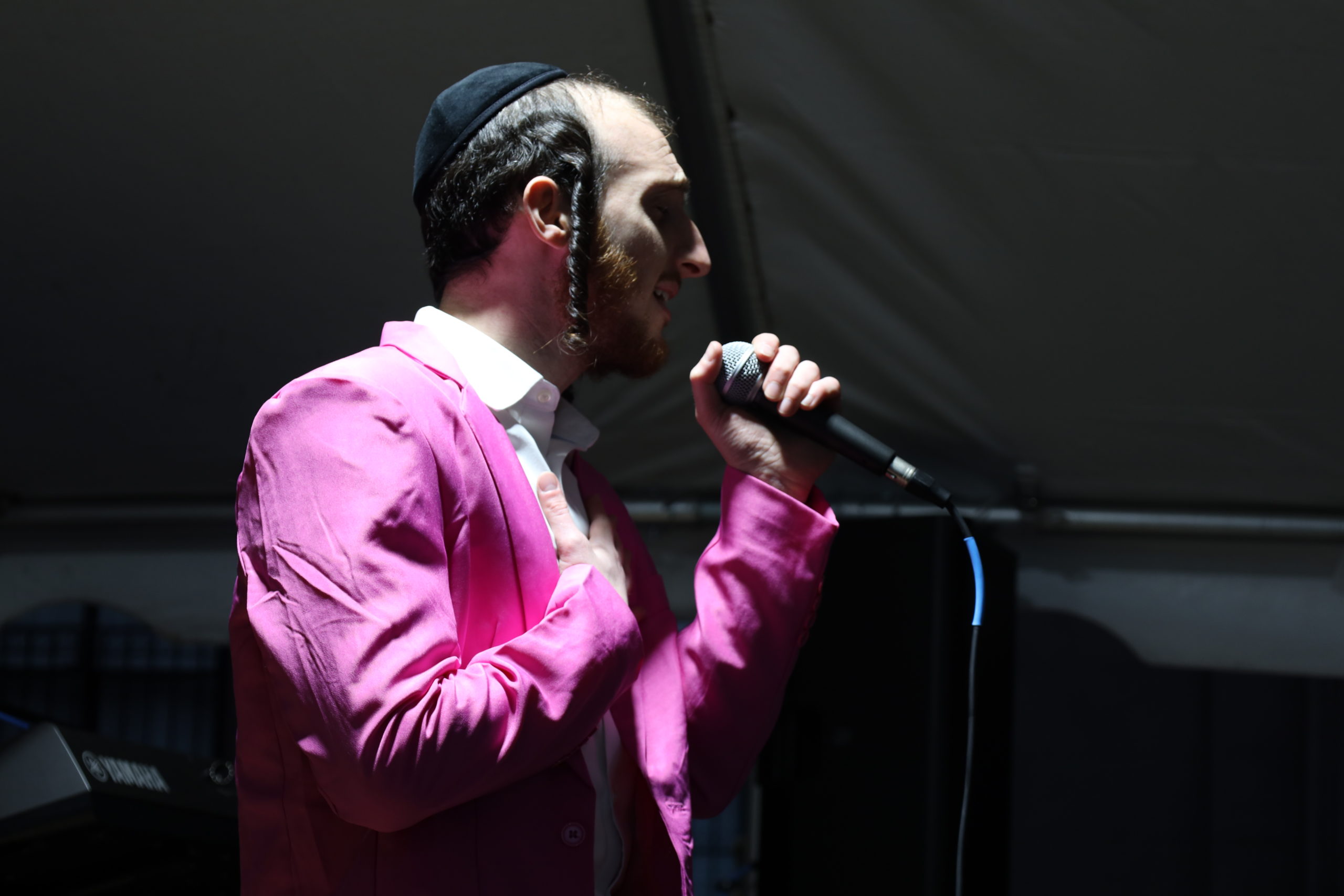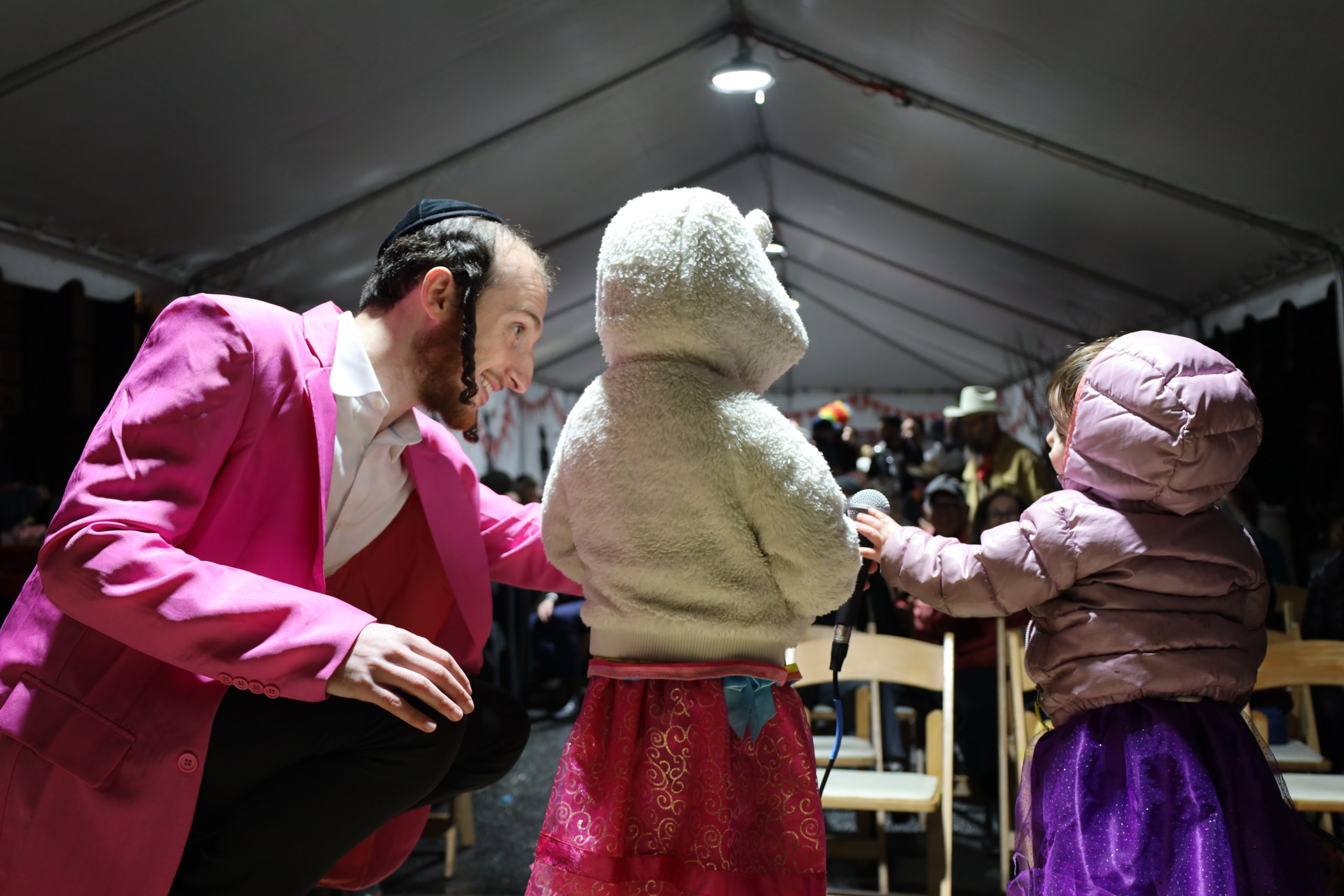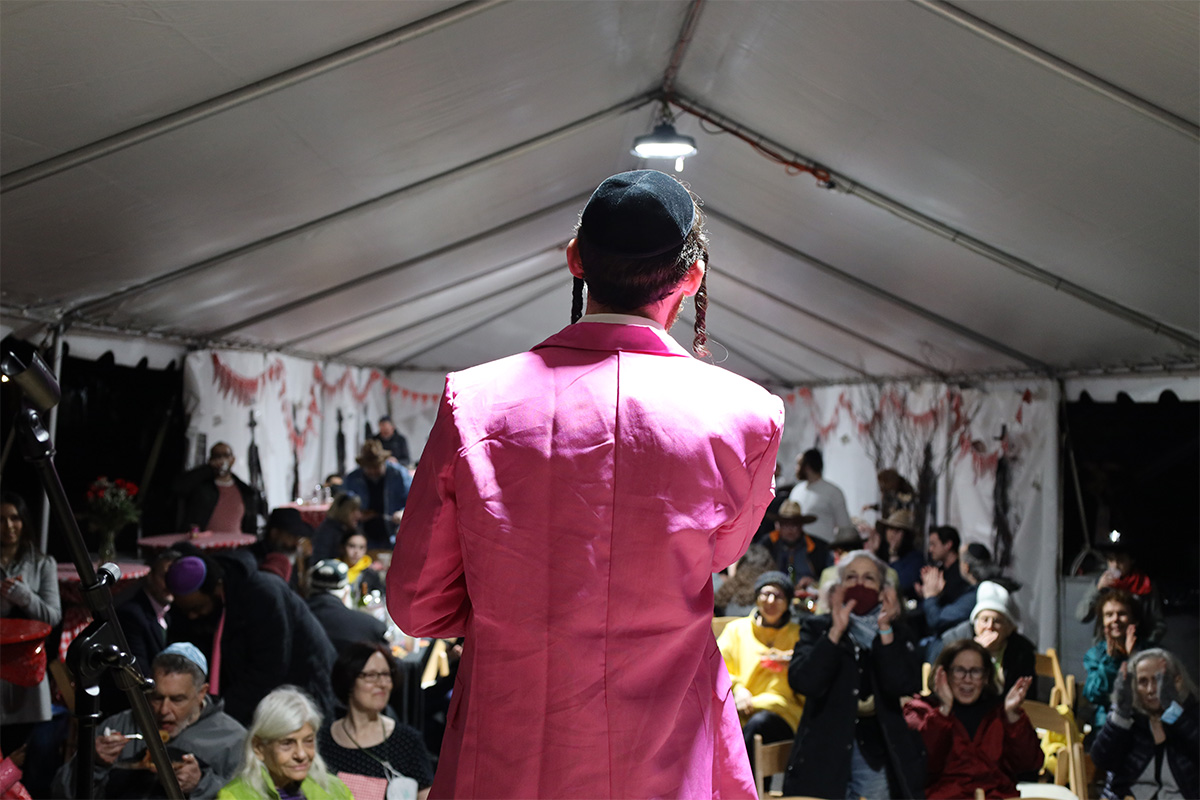When Shulem Lemmer arrived at the outdoor tent of the Brooklyn Heights Chabad for the Purim concert, he seemed like just another guest excited to celebrate. The only apparel he wore that seemed in the spirit of the holiday? An almost blindingly pink blazer. The rest of his ensemble appeared humble, yet exuded subtle swagger: a crisp, pressed white dress shirt, jet-black buckled loafers that shone bright, and a Louis Vuitton belt as sleek as his freshly twisted payos (side curls).
Shulem grew up in Borough Park, Brooklyn, a predominantly Haredi–Hasidic neighborhood. On an average weekday, the traffic along the 13th Avenue section is deafening. Yet one can hear a pin drop on that same street on a Saturday morning as the community embraces stillness and quiet for the Jewish Sabbath.
Shulem was raised within the traditions of the Belz Hasidic Dynasty, one of countless Hasidic communities which have been named for the small European village they originated from, as well as the lineage of rabbis who lead them. For example, Belz originated in, you guessed it, Belz, Ukraine.
Something sets Shulem apart from every other Haredi singer up to now: he is the first Haredi-born singer to be signed to a major label, Universal’s Decca Gold branch, which is classical-focused. But he would be the last person to tell you he’s different from anyone else, let alone above another Jew.
Clutching a hot tea to combat the chilly, misty air, he began soundcheck. People were already seated in place as though the performance had begun. Shulem stopped what he was doing to give an older woman an autograph on a crumpled, picnic-patterned napkin, as if he were not in the middle of something. This set a precedent for the tone of Shulem’s performance.
“We all go around in costumes, but we don’t look at each other as different,” he said when the set began. “Everyone, deep down, is the same human being.” This personal reflection kicked off his song “Face the Unknown.” He sang, “You and I are one / and we all shine under the same sun.” This was Shulem’s overarching message. He clearly wants to do more than merely accept people; he wants to embrace, rather than reject, the world around him.

When he launched into “When You Believe,” the showstopping-number from “The Prince of Egypt,” his vibrato trilled delicate precision. “Yet now I’m standing here” — Shulem interrupted himself, or rather enhanced the moment, saying, “We’re standing here. We’re standing here on Purim, right?” He wanted to connect with the audience, clearly asking why they were there: to appreciate this moment together.
Purim celebrates the thwarting of plans to execute all Jews in the town of Shushan by Haman, the antagonist of the Book of Esther. In Jewish communities around the world, it has the fanfare of Halloween, with people wearing costumes of all kinds, and the revelry of Fat Tuesday in New Orleans. To put it plainly, the Talmud is quoted as saying, “It is one’s duty to make oneself fragrant [with wine] on Purim until one cannot tell the difference between, ‘Cursed be Haman,’ and, ‘Blessed be Mordechai (one of the heroes of the Book of Esther).’”
“Does anyone speak Yiddish?” An audible cry was heard from an enclave of older Jewish women. “Mostly the Yiddishe mommes?” Shulem said with a smile on his face, as though he expected such a reply, and transitioned into “A Yiddishe Momme,” a classic song yearning for the love and care from one’s Jewish mother who has passed.
Shulem’s authenticity when singing in Yiddish transports one’s soul to a different time. His inflections make one crave cholent on a Shabbat afternoon; his enunciation of Yiddish words calls to mind the scents of matches just extinguished after lighting candles on a Friday night.

There was one woman who seemed particularly touched by Shulem’s singing. Physically, she sat under the tent, yet it looked as though her soul had left the room. She had a genuine, faint smile across her lined face, her eyes present yet glazed. It was as though Shulem’s wondrous melodies unlocked memories of her youth as a little girl, maybe with thoughts of her own Yiddishe momme lighting candles and singing songs of the old country.
The evening grew darker and the drinks stronger. Shulem was about to begin the party portion of the night, in which he would sing so everyone present could dance and celebrate in earnest.
However, before the real festivities could start, it was time for mincha and ma’ariv, the afternoon and evening prayers, for Shulem. He stepped away from the mic as he began to mutter the ashrei to himself and to his God. He continued his whispered prayers as he walked off the stage, onto the dark sidewalk alongside the brownstones of Brooklyn.
As the tent remained filled with bright lights, the large crowd, and blaring pre-recorded hoedown music, Shulem stood away from the tent with no one beside him. Immersed in his prayer and the darkness, he continued praying up against a wall along a building.
Just as he had done during his show, he was releasing the light from within into the darkest recesses of the world. This is his mission, the purpose of his art: to bring light to the darkness.



